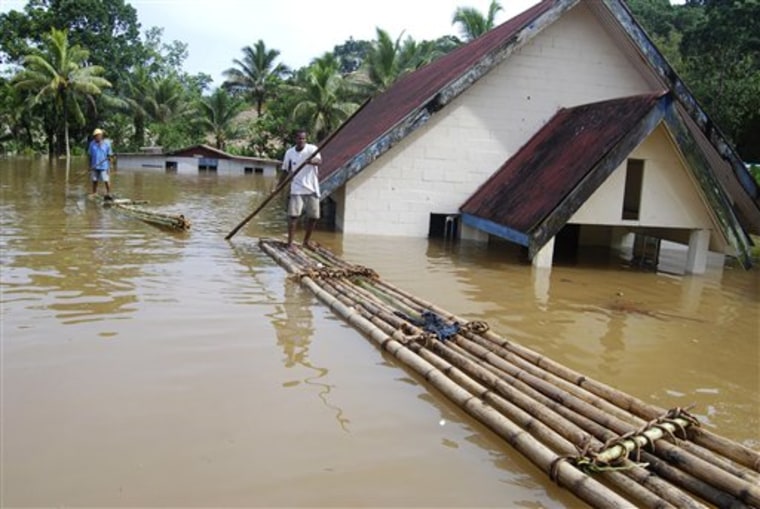Fiji's worst flooding in a generation has put tens of thousands of people at risk of respiratory illnesses, malaria and dengue fever, authorities warned Friday, after heavy rains killed 11 and left thousands homeless.
Hundreds of homes and businesses in towns and villages on the main island of Viti Levu have been inundated in waist-deep water from overflowing rivers and streams. Clean drinking water is scarce in some places, and stagnant water increases the risk of exposure to mosquito-borne diseases like malaria and dengue fever.
Joeli Cawaki, National Disaster Management Office director, told The Associated Press that it will take time for flood waters to recede and in the meantime there is a fear of disease outbreaks.
Medical authorities have already reported 85 people, including six babies, with diarrhea and respiratory illnesses at one emergency shelter in the country's battered western region.
More than 9,000 people are in evacuation centers — many without food, clean water, clothes or other possessions — after a week of torrential storms triggered the worst flooding in 40 years.
Foreign Affairs Secretary Ratu Isoa Gavidi said there is "a desperate need" for clean drinking water, water tanks and water purification tablets, as well as clothing, blankets, bedding and tents.
"There are some areas that have no water supplies at all. It could be roughly two to three weeks they will be without water," he told New Zealand's National Radio.
Sereima Koli, 37, a resident of the main tourist town of Nadi, was quoted as saying on the Fijilive news Web site that she had no clean water for drinking, washing or for sanitation.
"I hope that the authorities start carting water to us soon," she said.
Sugar cane farmers say the storms have wrecked tens of millions of dollars of crops in an industry that provides incomes for one in four workers in the island nation. Merchants in Nadi estimated $110 million in damage.
Fiji Chamber of Commerce president, Swani Maharaj, said businesses in Nadi will take six months to a year to recover from the floods, "but I'm sure a lot of the smaller ones will probably never (re)open."
Later Friday, Australia and New Zealand gave a combined $2.3 million to fund flood relief work in Fiji, adding to the $150,000 of initial funding they announced Wednesday. The U.S., China, Japan, Tonga and UNICEF have also pledged emergency funding.
